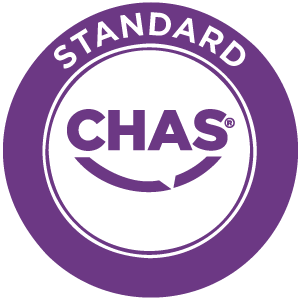Testing and Analysis
Accurate testing is the backbone of safe restoration. We offer essential on-site testing to assess contamination, moisture, air quality, and material safety post-incident.
Why It Matters
Every test we conduct is part of a wider commitment to quality, safety, and transparency. Results are documented and explained clearly, supporting restoration plans, health compliance, and insurance reporting.
🔹ATP Swab Testing (Adenosine Triphosphate)
Purpose: Rapid hygiene verification for contamination on surfaces.
Use: Common in post-flood sanitation, kitchens, care settings, and high-touch areas.
Why it matters: Detects organic residue that can’t be seen, confirming cleaning effectiveness in real-time.
🔹Air Quality Testing
Purpose: Measures airborne particulates, pollutants, and humidity levels.
Use: Ideal after fire damage, mould outbreaks, or during drying to monitor environmental safety.
Why it matters: Protects occupant health and confirms when indoor air is safe to reoccupy.
🔹ACM Sampling (Asbestos-Containing Materials – Non-Licensed)
Purpose: Identifies suspected asbestos in materials like tiles and textured coatings.
Use: Before strip-out, demolition, or intrusive drying in older properties.
Why it matters: Ensures legal compliance and protects against dangerous fibre exposure.


Specialist Testing Services
Accurate testing is the foundation of effective restoration. At Noble, we offer a comprehensive range of testing services to identify hazards, assess damage, and guide safe recovery after fire, flood, or contamination events.
🔸 Salts Analysis
Purpose: Identifies salts (nitrates, chlorides, sulphates) following water ingress.
Use: Post-flood, rising damp scenarios, differentiating water sources.
Why it matters: Salts can cause long-term structural issues and internal surface damage if not treated correctly.
🔸 Chloride Testing (Post-Fire Assessment)
Purpose: Determines the level of chloride contamination on materials.
Use: After fires where plastics or synthetics have burned.
Why it matters: Chlorides can become highly corrosive when exposed to moisture, forming acidic residues. Early detection and neutralisation are key to preventing further damage.
🔸 Calcium Carbide Testing (Moisture Testing)
Purpose: Determines the exact moisture content within solid walls and floors.
Use: Used after water damage to assess drying progress in dense building materials.
Why it matters: Provides reliable, accurate results where surface readings are insufficient, essential for confirming dryness before reinstatement.




